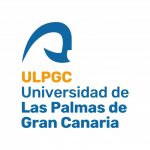
Fostering research excellence
in EU Outermost Regions


Fostering research excellence
in EU Outermost Regions

Canary Islands
Education organisation
Research centers or research group
The University of Las Palmas de Gran Canaria (ULPGC) is a higher education research institution created in 1989, with 11 University Institutes covering all fields of knowledge, approximately 22,000 students, 16 faculties and more than 1,600 researchers. The ULPGC has 115 groups of research, many of them carrying out research projects funded by the EC and the Spanish Government as well as International Mobility Programmes. It also has a Scientific and Technological Park to help make more dynamic the transfer of R&D+i results to society in the Canary Islands and among our neighbours, as well as helping to launch technology-based companies.
Considered one of the main Spanish universities in the use of new technologies, is also a competitive research institution in the areas within the Blue Economy and Tourism Sector, two of the main areas described in the Research and Innovation Strategy for Smart Specialisation of the Canary Islands (RIS3).
Through these activities, the ULPGC maintains its commitment to collaborating in the economic development and well-being of the Canary Islands, as well as serving as a platform for development cooperation for countries with traditional links with the Canary Islands, such as the countries of Latin America, or those that lie very close to the Canaries, on the African continent.
The universities of the Canary Islands (University of Las Palmas de Gran Canaria and University of La Laguna) have joined forces to develop the Tri-Continental Atlantic Campus, a space of excellence that receives and catalyzes talent in teaching, research, innovation and transfer projects with Africa and Latin America in Marine and Maritime Science and Technology, Biomedicine and Astrophysics, under the common denominator of a development model of integral sustainability.
ULPGC signed in 2014 the European Charter for Researchers and a Code of Conduct for the Recruitment of Researchers, a set of general principles and requirements which specifies the roles, responsibilities and entitlements of researchers as well as of employers and/or funders of researchers, and requirements that should be followed by employers and/or funders when appointing or recruiting researchers.
ULPGC is EURAXESS Local Contact Point from 2014 developing their activities with the support of the European Projects Office (OPE). OPE stimulates the ULPGC´s participation, through its researchers and research groups, in regional, national and European research, development and innovation funding programmes.
ULPGC contribute importantly into the RIS3 providing knowledge in those areas aligned with the Key Enabling Technologies (KET) such as Microelectronics, Biotechnology and Photonics.
In addition, ULPGC also contribute to the development RIS3 priorities in the Canary Islands region promoting and investing resources into the next areas of expertise:
The office of the Vice-Chancellor for Research, Innovation and Technology Transfer (VIIT) is the body responsible for lending institutional support to research and for defining policies relating to R&D+i.
The most relevant research domains of the ULPGC are:
IU-ECOAQUA (University Institute of Aquaculture and Sustainable Marine Ecosystems) http://ecoaqua.ulpgc.es/
IOCAG (Research Center for Global Change) http://iocag.ulpgc.es/
IUNAT (Institute for Environmental Studies and Natural Resources) http://www.iunat.ulpgc.es/iunat-inicio-es
IUSA (Institute of Animal Health and Food Safety) http://www.iusa.eu/
TIDES (Institute of Sustainable Tourism and Economic Development) http://tides.ulpgc.es/
IUIBS (Research Institute in Biomedical and Health Sciences) https://www.iuibs.ulpgc.es/
IDETIC (Technological Centre for Innovation in Communications) https://www.idetic.ulpgc.es/idetic/index.php/es/
IATEXT Research Institute of Text Analysis and Applications) http://iatext.ulpgc.es/
IUMA (Institute for Applied Microelectronics) http://www.iuma.ulpgc.es/
SIANI (University Institute of Intelligent Systems and Numeric Applications in Engineering) https://www.siani.es/
IUCTC (Institute of Cybernetic Sciences and Technologies) http://iuctc.ciber.ulpgc.es/
CFI (Integrated Manufacturing Center) http://www.cfi.ulpgc.es/
BEA (Spanish Bank of Algae) http://marinebiotechnology.org/es/
ULPGC is also an active player in EU projects with more than 200 proposals submitted within the FP7 and Horizon 2020 programmes. 48 projects have been funded (29 H2020 and 19 FP7 projects).
ULPGC works with renowned RTD organisations such as CSIC, INRA, FRAUNHOFER, DTU, NOFIMA, PLOCAN, AZTI-TECNALIA, etc. and industrial companies including TELEFONICA, AVL LIST GMBH, etc., as well as Public Administration such as CANARIAN GOVERMENT (GOBCAN) or FUNDO REGIONAL PARA A CIENCIA E TECNOLOGIA (FRCT).
ULPGC has joined different R&D platforms and associations at European level: ARTEMIS-IA, EATIP, EUROMARINE, WEGEMT.
ULPGC contribute importantly into the RIS3 providing knowledge in those areas aligned with the Key Enabling Technologies (KET) such as Microelectronics, Biotechnology and Photonics.
In addition, ULPGC also contribute to the development RIS3 priorities in the Canary Islands region promoting and investing resources into the next areas of expertise:
The office of the Vice-Chancellor for Research, Innovation and Technology Transfer (VIIT) is the body responsible for lending institutional support to research and for defining policies relating to R&D+i.
The most relevant research domains of the ULPGC are:
IU-ECOAQUA (University Institute of Aquaculture and Sustainable Marine Ecosystems) http://ecoaqua.ulpgc.es/
IOCAG (Research Center for Global Change) http://iocag.ulpgc.es/
IUNAT (Institute for Environmental Studies and Natural Resources) http://www.iunat.ulpgc.es/iunat-inicio-es
IUSA (Institute of Animal Health and Food Safety) http://www.iusa.eu/
TIDES (Institute of Sustainable Tourism and Economic Development) http://tides.ulpgc.es/
IUIBS (Research Institute in Biomedical and Health Sciences) https://www.iuibs.ulpgc.es/
IDETIC (Technological Centre for Innovation in Communications) https://www.idetic.ulpgc.es/idetic/index.php/es/
IATEXT Research Institute of Text Analysis and Applications) http://iatext.ulpgc.es/
IUMA (Institute for Applied Microelectronics) http://www.iuma.ulpgc.es/
SIANI (University Institute of Intelligent Systems and Numeric Applications in Engineering) https://www.siani.es/
IUCTC (Institute of Cybernetic Sciences and Technologies) http://iuctc.ciber.ulpgc.es/
CFI (Integrated Manufacturing Center) http://www.cfi.ulpgc.es/
BEA (Spanish Bank of Algae) http://marinebiotechnology.org/es/
ULPGC is also an active player in EU projects with more than 200 proposals submitted within the FP7 and Horizon 2020 programmes. 48 projects have been funded (29 H2020 and 19 FP7 projects).
ULPGC works with renowned RTD organisations such as CSIC, INRA, FRAUNHOFER, DTU, NOFIMA, PLOCAN, AZTI-TECNALIA, etc. and industrial companies including TELEFONICA, AVL LIST GMBH, etc., as well as Public Administration such as CANARIAN GOVERMENT (GOBCAN) or FUNDO REGIONAL PARA A CIENCIA E TECNOLOGIA (FRCT).
ULPGC has joined different R&D platforms and associations at European level: ARTEMIS-IA, EATIP, EUROMARINE, WEGEMT.